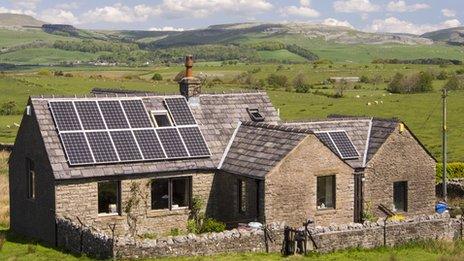Renewable energy: UK expected to miss 2020 targets
- Published
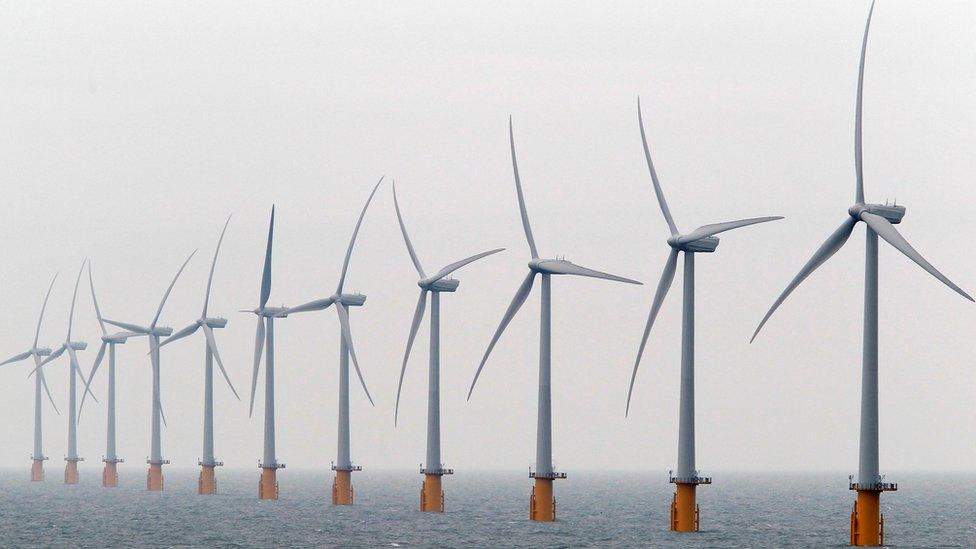
The National Grid said progress on wind and solar-powered electricity was quicker than some expected
The UK is almost certain to miss its EU 2020 targets for renewable energy, the National Grid has said.
The firm has produced UK future energy scenarios covering four different approaches in policy.
Even in the most environmentally minded scenario, the UK is projected to fail in its target of producing 15% of total energy from renewables.
The government no longer claims the 2020 target will be hit but a spokesman said the UK was making good progress.
The National Grid also says the UK will not achieve its own independently set long-term CO2 reduction plans unless tougher policies are imposed very soon.
Legally binding
The Climate Change Act mandates emissions cuts of 80% by 2050.
The government spokesman said the UK was still committed to the act, and last week ministers announced a world-leading interim step towards that goal.
But its advisers, the Committee on Climate Change, pointed to a huge mismatch between ministers' aspirations and their policies.
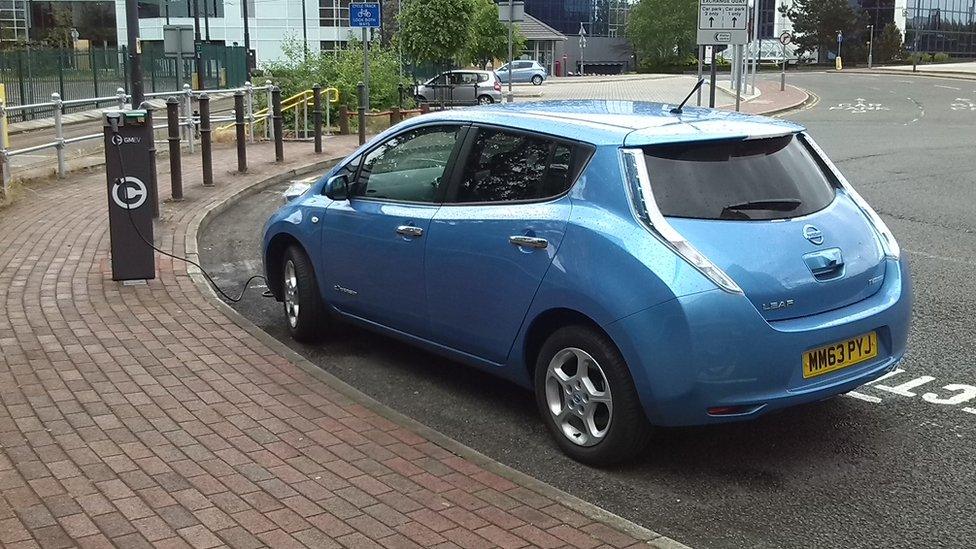
The rate of progress towards electric and hydrogen cars needs to almost treble, the National Grid said
The National Grid's report says Britain's progress on wind and solar-powered electricity has been quicker than some people expected.
But the rate of progress towards electric and hydrogen cars needs to almost treble (from 15 terrawatt hours (TWh) to 40TWh) to meet the EU 2020 target.
And the uptake of clean heating systems like heat pumps is also a massive challenge - needing to increase from 35 - 95 TWh.
On National Grid's low-ambition scenario, the UK will miss the targets by nine years.
Even the greenest scenario only reaches the targets by 2022.
The renewables targets are legally binding and the EU may wish to punish nations that fail to meet them.
The UK's energy system is closely bound to the EU in many ways, and Britain benefits from being able to import electricity through undersea cables.
It is impossible at the moment to say how links will change after the UK voted to leave the EU in the 23 June referendum.
Whatever the UK's relationship with the EU, Britain's energy system will still have to follow the Climate Change Act.
'Still achievable'
The National Grid report says three technologies are needed to ensure a cost-effective path towards its goals - 22 gigawatts (GW) of nuclear, 100GW of renewables and 20GW of fossil fuel generation with carbon capture and storage technology in 2050.
A spokesman told BBC News: "The 2050 targets are still achievable, but we need much more momentum.
"The government has to change the trajectory or we are going to fail. We need to learn our lessons from where things have gone wrong so far."
The government is struggling to build nuclear plants and scrapped a fund for carbon capture technology after Prime Minister David Cameron previously said it was "crucial" for the UK.
He later said the technology was "not working" and complained that costs had not come down as expected.
Follow Roger on Twitter @rharrabin, external
- Published30 June 2016
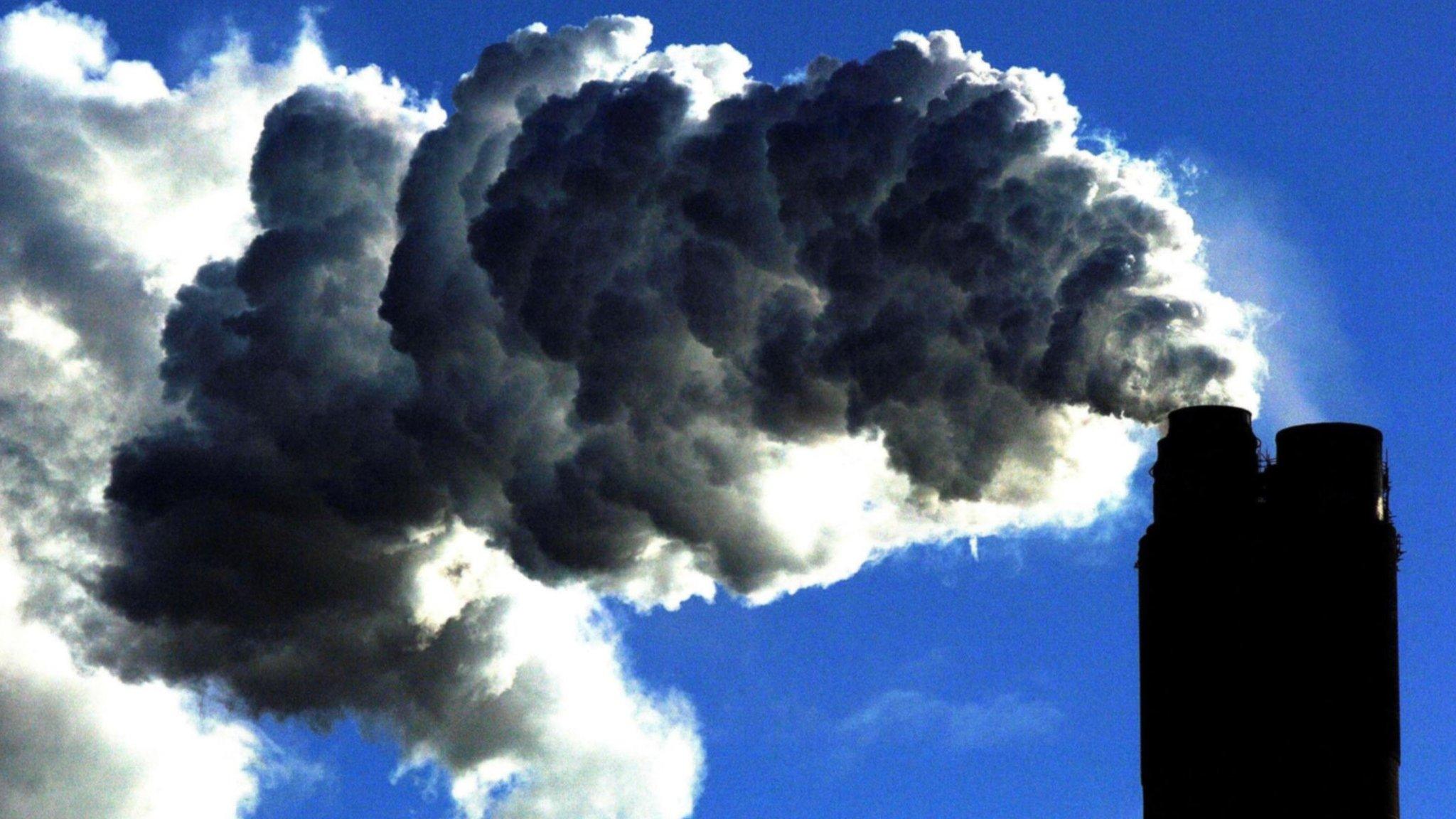
- Published1 June 2016
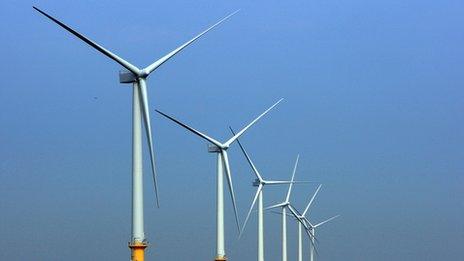
- Published10 November 2015
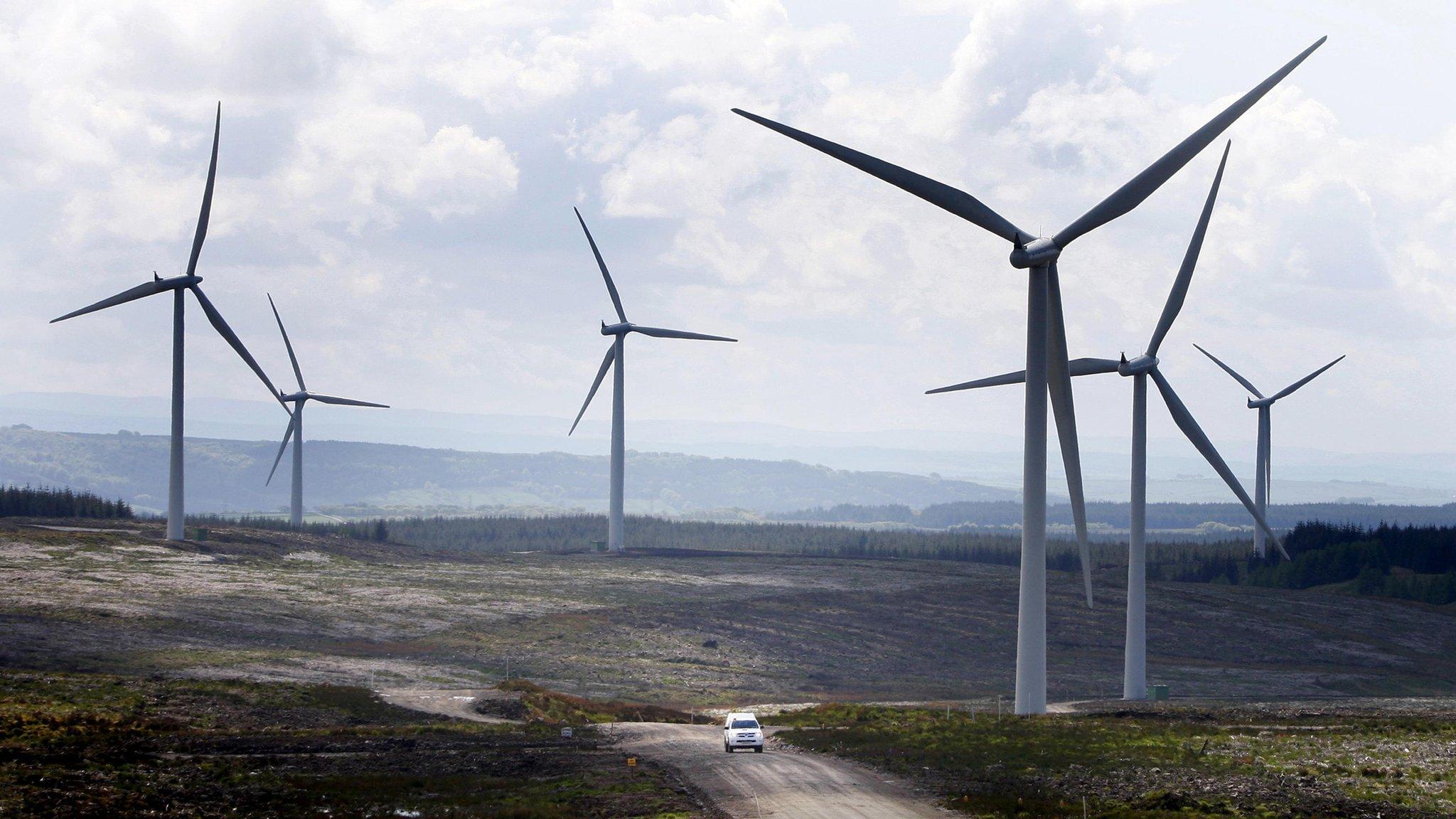
- Published10 November 2015

- Published19 October 2015
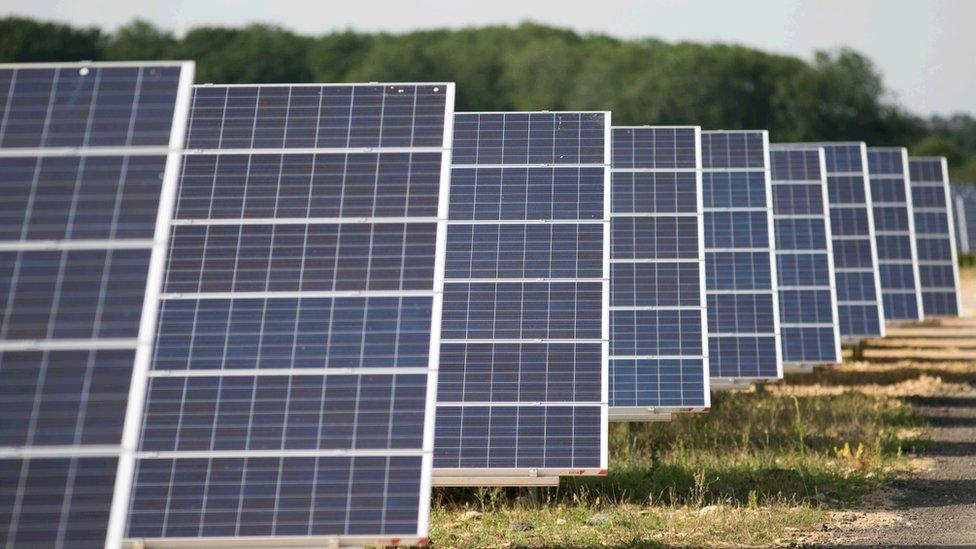
- Published9 November 2015
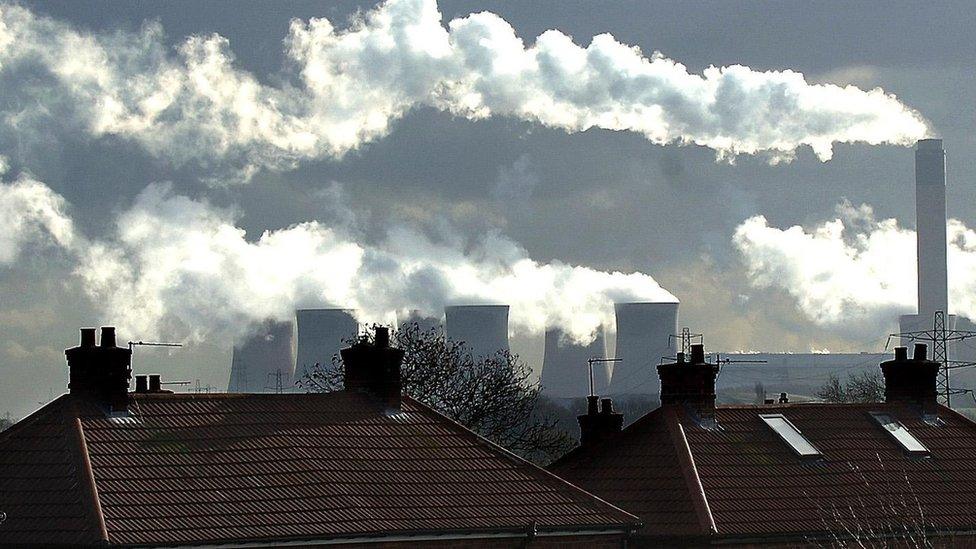
- Published27 August 2015
